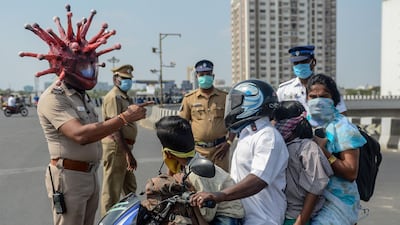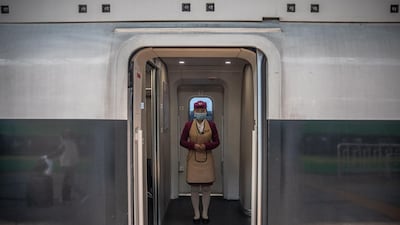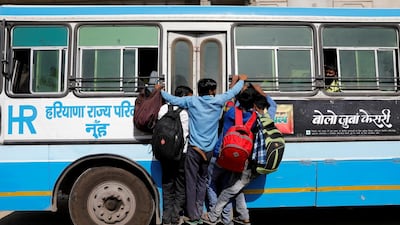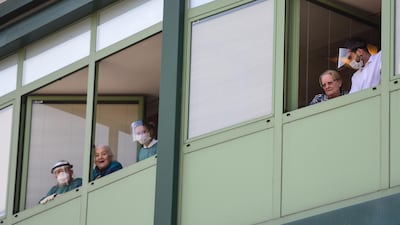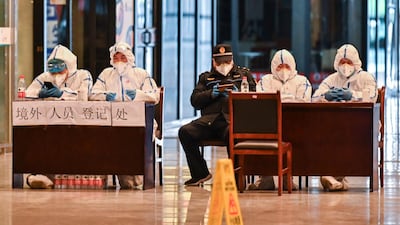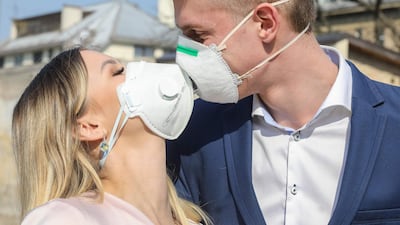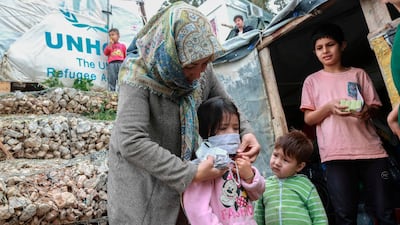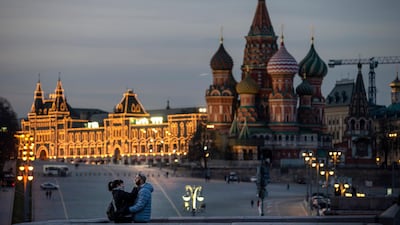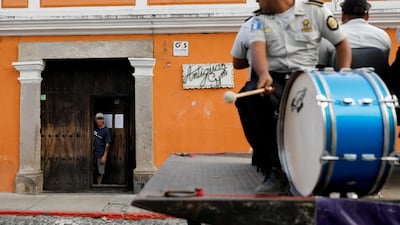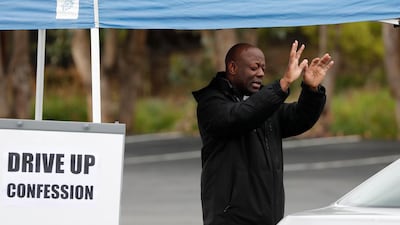US President Donald Trump has extended federal guidelines recommending people stay at home to help prevent the spread of coronavirus.
The guidelines will be in place until the end of April, having initially been introduced for 15 days.
Mr Trump's announcement was a stark reversal from comments made only days earlier, when he said he hoped the economy could restart in about two weeks.
It came after Dr Anthony Fauci, director of the National Institute of Allergy and Infectious Diseases, predicted the outbreak could kill up to 200,000 Americans.
Millions in the US could become infected, Dr Fauci said.
“We want to make sure that we don’t prematurely think we’re doing so great,” Dr Fauci said after the federal guidelines were extended.
By Sunday night, the US had more than 142,000 coronavirus patients and reported more than 2,400 deaths, according to Johns Hopkins University.
The true number of cases is thought to be considerably higher, with confirmed cases diminished by testing shortages and mild cases that have gone unreported.
More than 723,000 people have been infected across and about 34,000 have died, about half of them in Italy and Spain, where the healthcare system is at breaking point.
New York state, where the death toll has passed 1,000, remained the centre of the US outbreak, with the vast majority of deaths in New York City.
But infections increased not only in cities but in Midwestern towns and Rocky Mountain ski havens.
On Sunday, West Virginia reported its first death, leaving only two states, Hawaii and Wyoming, with no cases of Covid-19.
The virus is moving quickly through nursing homes, assisted living facilities and other places that house elderly or otherwise vulnerable people, spreading “like fire through dry grass,” New York Governor Andrew Cuomo said.
Since the first major outbreak in the US, at a nursing home in Kirkland, Washington, similar facilities across the country have battled infections among residents and staff.
A week ago, the US Centres for Disease Control and Prevention said 147 nursing homes in 27 states had patients with Covid-19, the disease caused by coronavirus.
The problem has only worsened since then.
In Woodbridge, New Jersey, a nursing home relocated all of its residents after two dozen were confirmed to have the virus and the rest were presumed to be infected.
In Louisiana, at least 11 nursing homes, largely in the New Orleans area, have reported cases.
In Mount Airy, Maryland, a death linked to the virus was recorded in a home where 66 people were confirmed to be infected.
The Tennessee governor’s office said a nursing home in the state had about 60 residents and 33 workers who tested positive.
Residents’ loved ones are being kept away to try to slow the spread.
Willa Robinson, whose husband, Vernon, died last Thursday, said she last saw him healthy on March 13, the day before his nursing home in Burbank, California, prohibited visitors.
She brought him his favourite meal of baked chicken, garlic mashed potatoes and carrots and left with their customary farewell.
“I love you,” she told him. “I love you more,” he replied.
She sat outside his hospital room days ago and watched through a glass window as he struggled to breathe.
She must now mourn her husband of 55 years in isolation.
“Nobody can come to me,” she said.
Others said they feared they may not be able to say goodbye to their families.
“I have a feeling that I very likely may never see my mother again,” said James Preller.
His mother, Ann, 94, is a resident at Peconic Landing, a retirement community on New York’s Long Island and where seven people have died as a result of the outbreak.
For most people, coronavirus causes mild or moderate symptoms, such as fever and cough. But for others, especially older adults and people with existing health problems, the virus can cause severe symptoms such as pneumonia and can be fatal.
In New York City, the virus is overwhelming some of the poorest neighbourhoods, with data showing high rates of infection in densely packed areas with big non-English-speaking populations.
Dr Craig Smith, who heads the surgery department at New York-Presbyterian/Columbia University Medical Centre, said the hospital could soon be forced into “apocalyptic scenarios” in which ventilators and intensive care unit beds would be rationed.
Mr Trump discussed the images he saw on TV this week, with bodies being removed from Elmhurst Hospital in his native Queens and put in large refrigerated trucks.
“Body bags all over, in hallways. I’ve seen things that I’ve never seen before,” Mr Trump said.
New York City Mayor Bill De Blasio asked the federal government to deliver 400 more ventilators and said the city could run out of masks, gowns and other supplies in a week.















